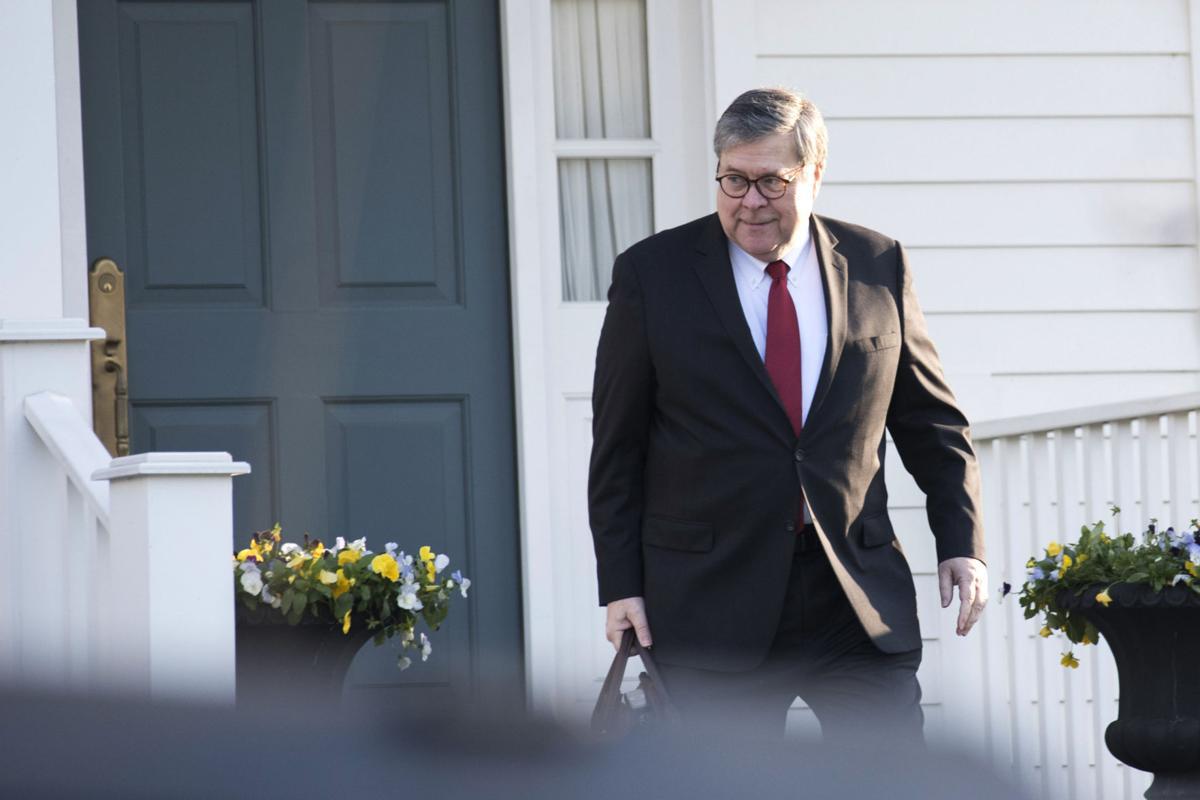|
Shapiro addresses Pennsylvania child sex abuse case with feds, U.S. AG Barr
By Dave Sutor
When Pennsylvania Attorney General Josh Shapiro talked with U.S. Attorney General William Barr recently at the White House, he brought up only one subject – child sexual abuse. The Johnstown area and commonwealth as a whole have been rocked by that issue in recent years. Locally, in 2016, the state office of attorney general released a report that provided details about abuse and cover-up within the Roman Catholic Diocese of Altoona-Johnstown, an investigation that was initiated when accusations arose about Brother Stephen Baker sexually abusing children when working as a trainer at what was then called Bishop McCort High School. Two years later, another grand jury released a report in which 301 priests were accused of abusing thousands of children throughout six other dioceses – Allentown, Erie, Pittsburgh, Scranton/Wilkes-Barre, Greensburg and Harrisburg. That report, released by Shapiro, led to federal prosecutors opening an investigation last October into child sexual abuse committed by Roman Catholic priests in Pennsylvania. All eight dioceses in the commonwealth, including the Archdiocese of Philadelphia, have been subpoenaed by the U.S. Department of Justice. Then, earlier this month, Dr. Johnnie “Jack” Barto, a Johnstown area pediatrician, was sentenced to no less than 79 years and up to 158 years in prison for charges related to 31 victims – patients or family members – he sexually abused. “It was the only issue I raised with him because it’s the most important issue, I think, for the feds to confront at this time,” Shapiro said during a telephone interview on Friday. “I thought it was important that, as the new attorney general, he knew how important I thought it was and knew of my commitment to work with him and his colleagues on it.” Shapiro had previously discussed the subject with former U.S. Attorney General Jeff Sessions and U.S. Deputy Attorney General Rod Rosenstein. He did not provide details about his meeting with Barr, but characterized it “as a very positive and productive conversation.” During the interview with The Tribune-Democrat, Shapiro mentioned three similarities between Barto and the dioceses, first saying “just the courage and strength of the survivors and their willingness to come forward and share their truth” was a key takeaway. He also pointed to how the abusers held roles in the community that provided them protection. “In both the clergy case and the Barto case, it’s an example of the powerful institution – whether it’s the church or this pediatrician, school board, director, church leader – getting his way over the survivors because of their power in the community,” Shapiro said. Also, in both cases, charges could not be brought by many alleged victims because of Pennsylvania’s statute of limitations, which is reached when an individual turns 30 for civil cases and 50 for criminal. The grand jury issued four recommendations, including two dealing with the statute of limitations: • Eliminate the criminal statute of limitations for sexually abusing children. • Create a “civil window” so older victims may now sue for damages. • Clarify penalties for a continuing failure to report child abuse. • Specify that Civil Confidentiality Agreements do not cover communications with law enforcement. During the last legislative session, the Pennsylvania House of Representatives passed statute of limitations reform that included a two-year retroactive window during which alleged victims could bring claims against abusers even if the time had already elapsed. The measure failed in the Senate. Statute of limitations reform is expected to again be taken up by the legislature. “I remain committed to the victims and to the 23 grand jurors and their work, period, hard stop,” Shapiro said. “I know that there are plenty of votes to pass those four grand jury reforms in the House and Senate. It’s really just a matter of whether or not the president pro tempore in the Senate chooses to bring it up. But I remain optimistic. And I know that the voice of the survivors will carry the day eventually.” In order to address the issue going forward, the attorney general feels “you need to first make sure you’re electing people and appointing people to these positions of authority who will listen to victims and not be pressured to fall in line with the powerful institution. I think that is maybe one key thing. “The other is – I think in Johnstown, in Pittsburgh, in Philadelphia and really all across this country – there is a reckoning going on where I think more and more people are rising up and saying we want to put people before powerful institutions. I think you see that in the wake of the clergy cases, the Barto case. You see that in Hollywood. You see that in our politics and business industry. And I think that’s a good healthy thing for society.” Contact: dsutor@tribdem.com
|
.
Any original material on these pages is copyright © BishopAccountability.org 2004. Reproduce freely with attribution.
